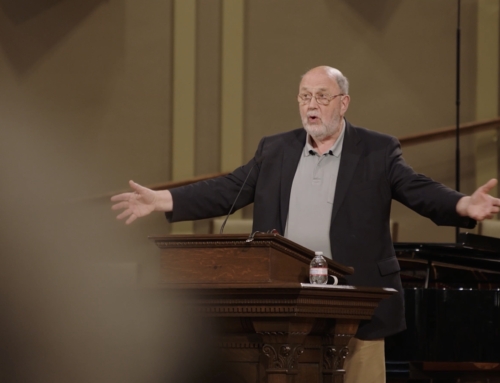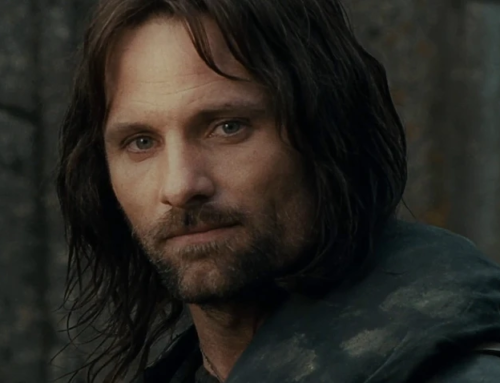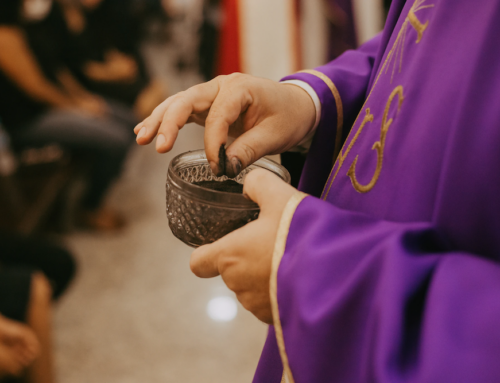While many churches work hard on their mission statements, few seem to capture the sheer wonder and empowering hope of Prof. N.T. Wright’s statement that human beings form the pilot project for New Creation right now (see Ethnicity, Justice, and the People of God Session Five: Early Christian Retrieval of Justice). ‘People who believe in the resurrection, in God making a whole new world in which everything will be set right at last, are unstoppably motivated to work for that new world in the present’ (Tom Wright, Surprised by Hope, p.225).
As someone who has been leading local churches for over three decades, I cannot overemphasise how motivating and empowering it is to know that the Risen Christ is at work in us not only to announce but also to anticipate Jesus’s new creation! It drives us to radically reconfigure every aspect of our ministry and mission in the communities in which God has placed us.
Over the last four years, I have been working for a faith-driven NGO in the justice space, specifically calling churches to take the lead in ending modern slavery. It’s a powerful thing to see how this vision of hope draws people into God’s heart for justice.
I say this because working toward the end of slavery seems an insurmountable task. The initial challenge is to help people see that slavery is actually still a very serious problem. Most think that slavery ended hundreds of years ago, either with William Wilberforce’s Slavery Abolition Act (UK) in 1833 or the 13th Amendment to the US Constitution in 1865. Given those events so long ago, how can there possibly still be slavery today?
Slavery: worse today than ever before
While it’s true that just about every country has laws against slavery, this has not stopped the powerful from oppressing those who are poor. Right now some 40.3 million people are being violently exploited by some form of modern slavery. It’s not just poor labour conditions, either. People in slavery are regularly unpaid, and in some forms of bonded labour, the more they work the larger their debt becomes. They cannot get away, and if they do not follow orders they are threatened, beaten, or even killed. Slavery like this thrives because these people typically are poor and defenceless, and no one speaks up for them. In many contexts of slavery, the perpetrators operate with impunity. A few relevant statistics:
- Modern Slavery generates over $150bn per annum – that’s more than Apple and Microsoft together!
- 62% of those enslaved are in the Asia-Pacific region
- 570 million women experience gender-based violence every year
- 33% of youth globally have experienced police abuse of power
- 5 billion of the earth’s 7.9 billion people live outside the protection of the law
How can this be happening? In short: justice systems that should be working to protect the vulnerable are failing, and for a whole host of reasons. Sometimes it’s a lack of competence in law enforcement entities. Sometimes a lack of resources means properly constituted law enforcement entities don’t have the capacity to stop injustice. Sometimes, elements of justice systems are impacted by corrupt forces. Any combination of incompetence, lack of capacity, or corruption leaves many justice systems ineffective and broken.
This is not just an abstract problem. Every one of those 40.3 million is someone’s family. They are real people. People like the two brothers who, when the pandemic hit, were transferred by their construction company from Myanmar to Thailand. Even though they were promised the same salary, plus meals and lodging, that’s not what happened. After a while their wages were cut, and then held, by the company. The company also seized their passports so they could not return home. So, the brothers were trapped in forced labour slavery and they could not escape. There are quite literally millions of similar examples of deceptive, oppressive, and violent situations occurring right now.
Why should we care?
The confronting question for us all is, Why should we care?
Firstly: God’s word does not afford us the luxury of indifference. The recently released N.T. Wright Online Course, Ethnicity, Justice and the People of God eloquently demonstrates God’s consistent concern for the widow, the fatherless, the poor, and the foreigner. Our God is the defender of those who cry for justice (Psalm 94). He sees them. He knows them. He hears their cry (Psalm 10:14). He does not only want to see those who are poor treated fairly, he wants to see them lifted up (Psalm 107:41; Proverbs 31:9). He wants justice to be done. He wants things to be made right.
The prophetic values of justice and righteousness are the same values with which Jesus launched and conducted his ministry (see Matthew 5-7, 11:1-6, and Luke 4:18-20). They are the same values which are embodied in the New Testament church and Paul’s teaching (Acts 4:32-35, 6:1-7, & 20:35; 1 Corinthians 8:1-9). The entire biblical narrative shows concern for the poor and the pursuit of justice and righteousness right at the heart of God and what it means to be his people. For us today, it is still God’s express intention that we as God’s people embody the justice and righteousness of New Creation to the world around us.
Secondly, we dare not ignore modern slavery because it’s most likely that (especially for people like me in the ‘wealthy west’) we are actually benefitting from it. It’s a horrific thought. Consider:
- Coffee and chocolate – coffee and cocoa are commonly linked to modern slavery. When purchasing products, we should ask how they are sourced. Were the growers paid a fair and living wage for their produce and labour? Can your supplier or retailer show their supply chains are slavery free?
- Clothing – there are well documented cases of forced labour in clothing production, and perhaps one the most well known case is that of the Rana Plaza disaster. So, that unbelievably cheap outfit – where was it made, and under what circumstances? If the price was too good to be true, it may also have been too cheap to be slavery free.
- We all love our tuna sandwiches – but in Australia at least, it is almost impossible to purchase slavery free tuna. Thailand is the world’s third largest seafood exporter, and the industry is worth US$6bn per annum
- Technology – CNN’s recent report exposes how mining and production of cobalt and other rare earth minerals often exploits forced labour slavery. Worryingly, there’s a very high chance that our phones and tablets have slavery in their supply chains.
There’s a strong chance that many goods and commodities we consume in western culture have utilised slavery or violence against poor people somewhere along the line. Governments and corporations, to this point, have largely been slow to act.
What can we do?
I cannot tell you how burdened I feel writing those words. It can sometimes seem hopeless. Think about it: What can I do about it? What can I do to influence a nation’s procurement practises? How can I make retailers ensure their stock is fairly and justly produced? How do I find out whether my preferred brand is slavery tainted – and what can I do if the probability is high?
Here are some helpful steps:
- Do a web search for ‘Organisations exposing supply chain slavery risk’ – this may put you in contact with an organisation in your region which will help you become more aware of what local companies and corporations are doing.
- Read reputable news releases – Thomson Reuters, the Global Slavery Index, and Walk Free are great places to start.
- Start a group at your church or in your community to build awareness and identify steps you might be able to take. Jim Martin’s The Just Church will help you on your way.
- Connect with interested groups and lend your voice to those who are advocating for change.
But seriously, the most concrete step you can take to end modern slavery and violence against the poor is to support an organisation like International Justice Mission (in the interests of full disclosure I should point out that I work for IJM in Australia as Director of Church Partnerships). IJM’s end-to-end justice solution is being implemented in multiple contexts around the globe so that:
- People are rescued and restored from contexts of slavey and violence
- Those who perpetrate these evils are restrained and prosecuted through the justice system
- Justice systems that are ineffective are repaired
- Bridges are built with governments and key partners to ensure the protection of people who are poor and vulnerable
Of course, altruistic humanitarian grounds should be sufficient to motivate us to end modern slavery, but the fact that God has always called his people to ‘learn to do right, seek justice, [and] defend the oppressed’ (Isaiah 1:17) should really drive the church to lead society to end slavery and violence against those who are poor. Studying the Bible drives us to this conclusion. As Christ lives in us, creating us in true righteousness and holiness, he will lead us to take adventurous and even courageous actions to seek first his Kingdom and his righteousness, and along with that, the end of slavery in our lifetime.







